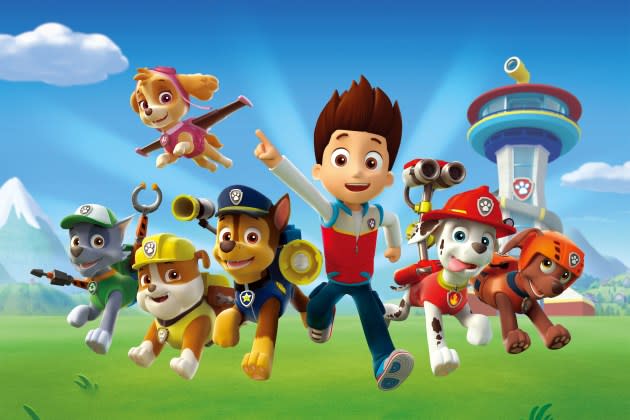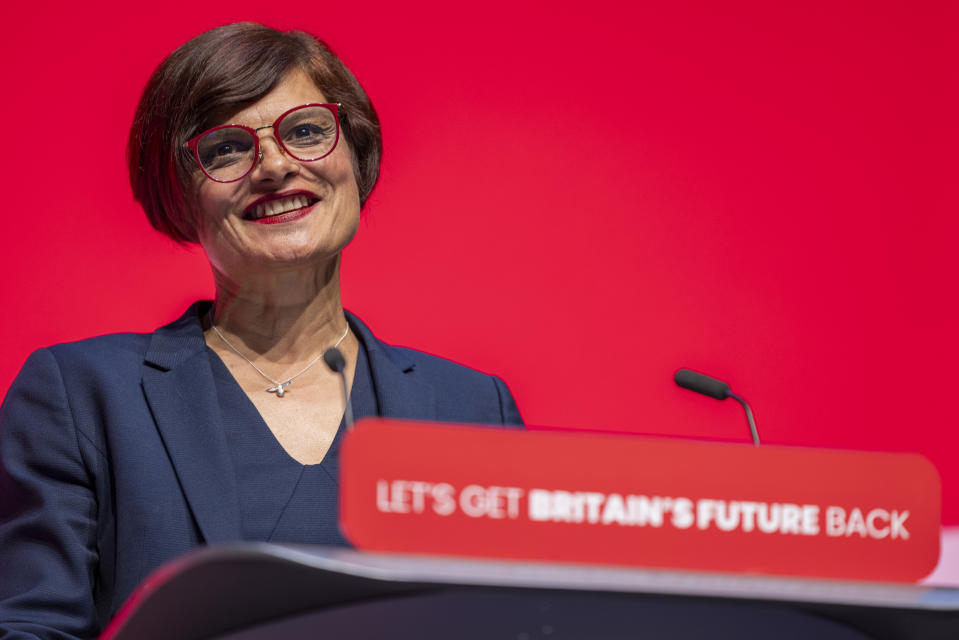Children’s TV In Crisis: Netflix, YouTube, BBC & Others To Be Summoned To Summit Exploring How To Resuscitate Genre In The UK

EXCLUSIVE: The biggest players in UK children’s TV are being asked to attend a summit early next year to try and resolve grave funding issues amidst existential questions over the genre’s future.
The Children’s Media Foundation (CMF) has been preparing the summit for months including via a series of consultative meetings with all the major broadcasters, producer groups and lobbyists from August to October. The likes of Netflix and YouTube, which have been hugely influential in shaping the modern children’s TV sector, will also be invited to attend. Organizers are concerned about the outsized impact these global behemoths are having on the local children’s TV sector.
More from Deadline
Local children’s TV in the UK is in hot water, according to CMF boss and summit organizer Greg Childs, due to stiff competition, the difficulties in attracting young audiences to broadcast TV, a sharp rise in production costs and a lack of commercial opportunity to sell shows around the world. Those at the consultative meetings were “galvanized” yet “downbeat in their estimations,” Childs said.
The CMF boss and head honchos like BBC Children’s boss Patricia Hidalgo will try to use the summit early next year to run through a range of options for a shot in the arm – with tax breaks, levies, one-off funding pots and potential prominence legislation all on the table – as well as posing and attempting to answer existential questions about the future of the ailing sector. Along with the streamers and YouTube, which would be a huge get were they to attend, children’s advocacy bodies will also be invited, because “if children are no longer seeing themselves on screen then they will not know their place in society,” said Childs.
“If an entire generation do not spend any time at all with linear media and can’t find public service content then what happens when they grow up and we ask them to pay for it?,” he added. We know the number of ‘refuseniks’ is going up all the time but this goes further, it’s a potential exponential shift. We will look at every option. For us this is an issue of funding and finding [content], and the need to reconsider the broadcasters’ relationship with platforms like YouTube.”
A three-year UK government-backed pilot progam, the Young Audiences Content Fund, concluded recently with mixed results, and has not quite given the sector the boost it needed, several sources told Deadline. An independent evaluation found that the fund had demonstrated significant social and economic value, while proving an effective lever in delivering the majority of the aims and objectives of the fund, but more money is now required, sources said. Hidalgo set out her stall with a setpiece in September as she urged the entire UK sector to ask the government for help, “not just for a handout but because change is happening at such a deep societal level that no solution is possible without [the government].” Hidalgo, who used to run Turner Kids EMEA, had raised concerns that children are becoming “culturally swamped” by the current wealth of international imports.
Bringing politicians on side

The CMF is also bringing politicians on side. Following the nine hours of consultative meetings that concluded several weeks ago, Childs and his team sent a condensed briefing document – described as a “children’s TV shopping list” – to the likes of Culture Secretary Lucy Frazer and her opposite number Thangam Debbonaire. Debbonaire spoke about the issue in a parliamentary debate late last month, with the likes of former Labour Party leader Jeremy Corbyn chiming in. Pointing out that children’s TV has been “lost” in the landmark Media Bill that is currently making its way through parliament, Debbonaire urged Frazer to “look at this again” and speak with international media platforms like Disney+ and YouTube to ensure “quality children’s content” from the UK is accessible.
Childs is also speaking with regulator Ofcom about the crisis and hopes the summit will bring forth answers.
Drilling down, the main age group of concern is seven plus, who Childs says have “migrated in such massive numbers partly to the streamers but most notably to the video-sharing platforms.” Although this was not raised in the consultative meetings, Childs posited whether broadcasters should be “thinking about what a public service TikTok would look like.”
The BBC will soon close iconic channel CBBC for this age group on linear (ITV has already shuttered its equivalent, CITV) but Childs claimed broadcaster VoD platforms such as iPlayer aren’t making up for young audience declines.
The situation worsened over the weekend with Prime Minister Rishi Sunak’s revelation that the BBC license fee will likely not rise with inflation as previously promised, which will no doubt impact BBC Children’s TV spend – a figure that fell slightly last year to £96M ($121M). Nevertheless, BBC Children’s is still taking big swings, commissioning the likes of Nicolas Winding Refn’s The Famous Five adaptation and Crongton Knights, which Deadline revealed yesterday. The BBC commissions by far the most children’s content in the UK and BBC Studios has a Children’s and Family department that produces shows for kids.
Best of Deadline
2023 Premiere Dates For New & Returning Series On Broadcast, Cable & Streaming
2023-24 Awards Season Calendar - Dates For Oscars, Emmys, Grammys, Tonys, Guilds & More
Colman Domingo To Receive Palm Springs Film Festival's Spotlight Award, Actor
Sign up for Deadline's Newsletter. For the latest news, follow us on Facebook, Twitter, and Instagram.


